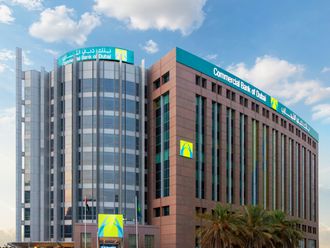Dubai: Oil Importing countries of the Middle East and North Africa, Afghanistan and Pakistan (MENAP) region are expected to report resilient and inclusive growth in economic activity in the year ahead according to the Regional Economic Outlook of the International Monetary Fund (IMF).
“Oil importing countries from the region are projected to expand by 4.3 per cent in 2017, well above the 3.6 per cent reported in 2016. This projected expansion which is mildly stronger than the 4 per cent growth forecast in the May 2017 is expected to be broad-based, with growth forecast to accelerate in most oil importers, supported by domestic demand and exports,” said Jihad Azour, Director of the IMF’s Middle East and Central Asia Department.
In the medium term, growth in MENAP oil importers is projected to continue improving gradually, with growth reaching 4.4 per cent in 2018 and averaging 5.3 per cent during 2019—22. “Despite the broad based economic recovery in these economies, this pace of growth will be insufficient to generate enough jobs to absorb those who are currently unemployed, as well as the millions of job seekers who will enter the labour market over the period,” said Azour.
The average fiscal deficit in MENAP oil-importing countries is expected to narrow slightly from 6.8 per cent of GDP in 2016 to 6.6 per cent in 2017, and further to 5.6 per cent in 2018. Nevertheless, significant vulnerabilities persist given the legacies of weak domestic revenue mobilisation and high current expenditures (subsidies and wages) that, for most countries, have pushed public debt to more than 50 per cent of GDP. This trend has been exacerbated by the impact of valuation changes owing to currency depreciation, rising interest payments, and lacklustre growth.
“Sustained fiscal consolidation and reforms are required to address debt vulnerabilities,” said Azour. Debt levels are expected to fall by 2022 in most countries given anticipated consolidation, which should include carefully targeting current expenditures to protect social spending and improving the efficiency of public investment to mitigate the contractionary effect on growth.
Despite the anticipated pick up in growth, the IMF has called for bold structural reforms to enhance private sector activity and foster a more dynamic, competitive, and inclusive economy. Improving the business environment, including by improving the quality of infrastructure, will be critical.
Labor market and education reforms, improving productivity, and enhancing access to finance will also help. Overall risks remain tilted to the downside. These risks include regional conflicts and security risks, the risk of social tension and reform fatigue, and the ongoing vulnerability of agricultural activity to weather and price developments.
Risks to the global economic environment that are also relevant to the region include the risk of more rapid tightening of global financial conditions and the pursuit of inward-looking policies by advanced economies. On the upside, a stronger-than-expected pickup in activity in the euro area and other trading partners would lift regional growth, the IMF said.










